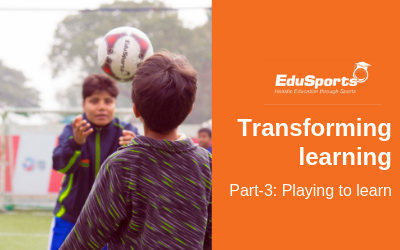“To succeed is to have failed” – learning from failures

“To succeed is to have failed” – learning from failures
John McEnroe was the # 1 tennis player from 1980 to 1984 – and one of the finest shot-making players in tennis the world has ever seen. But the world also remembers him as abusive, arrogant and entitled from his behavior on the court. Apparently, he did not know how to lose – and blamed everyone else around him whenever he lost. Contrast him with another tennis champion of recent times – Roger Federer – and the differences can’t be starker. For Federer, losing or making mistakes is not a sign of weakness, but a blessing, because they help him hone what he needs to work on to improve – and be his best. Moral of the story: One might still succeed in a vocation purely because of natural ability or talent, but this success is always pre-determined, and one should be careful that the pursuit of success at any cost does not leave behind a negative atmosphere in its wake.
Learning to lose or fail is one of the most critical attributes required for being successful in any sphere of life. Carol Dweck, a famous psychologist talks about the ‘growth mindset’ – which allows us to learn from our failures and improve our abilities – in contrast to a ‘fixed mindset’, where we shirk failures and think that our abilities are carved in stone – or can’t be improved. For instance,
“I am not good at kicking the ball.” – is a good example of a fixed mindset, and
“I am not good at kicking the ball, yet.” – captures the growth mindset well.
A fixed mindset, as it assumes a fixed ability or aptitude, does not know how to deal with or learn from failures – and greatly limits the growth of an individual.
In one of the studies conducted by Dweck and her team, they found that children who displayed a ‘growth mindset’ displayed higher levels of achievement in school (and outside) in areas where success could be measured, regardless of their initial aptitude. They also found that children from poorer households, who displayed a growth mindset, on an average performed as better, as children from high income households who had access to a far better quality of education. In India, this insight holds huge promise in how we approach education (public or private) for hundreds of millions of children who come from low income group households – and may not have access to high quality education.
So how does one learn to develop a growth mindset – or an ability to learn from failures? Our decade long experiments in using sport in schools have shown us that sport could be a powerful tool to teach critical life-skills including the ability to deal with failures. Sport can mimic life (on playgrounds) – and if used appropriately in learning environments such as schools – can help shape right experiences and behaviors of children. Most importantly, the cost of failures extracted on playgrounds is very small compared to costs of failures in real life – so children can be taught to fail often and learn from their mistakes on the playgrounds.
While sport can be a great vehicle for teaching the growth mindset to children, it is not complete without informed adult (parental or teacher) guidance. Caring adults can recognize the right opportunities to get the child to focus squarely on the process or the effort (the notion of practice or training in sport), and not on the outcomes (such as winning or losing). The adult could also make the child realize the importance of ‘deliberate practice’ – where by applying herself to any task or vocation (and learning continually from mistakes), she can increase her aptitude and abilities significantly in that task.
In the words of an ancient philosopher, “to succeed is to have failed, and to fail is to have succeeded.” This philosopher certainly knew how failures always predicate success, but success by itself means nothing – besides being a positive outcome of an event!






